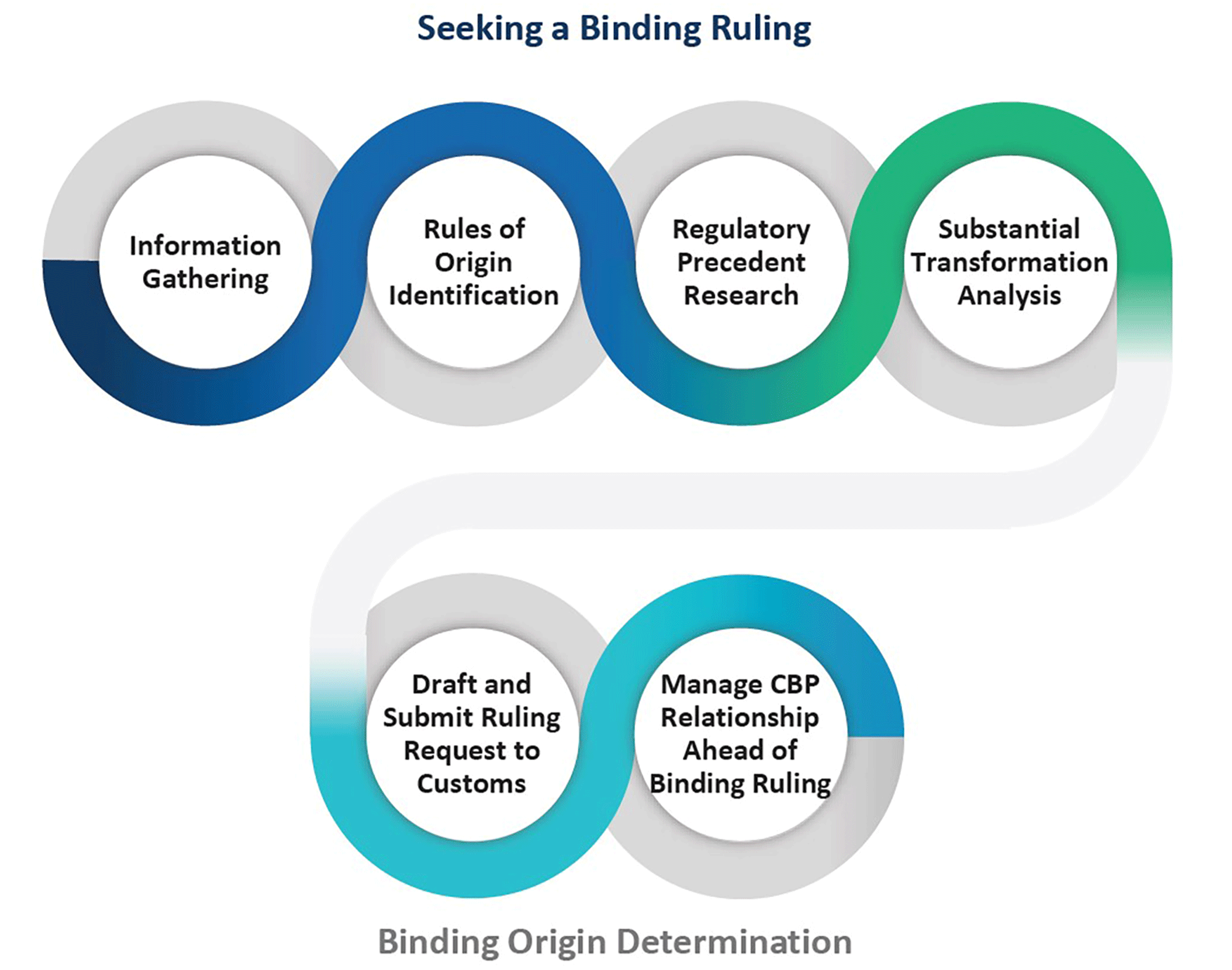- Home
- / Insights
- / Service Sheets
- / Country of Origin / Substantial Transformation Determination
Country of Origin / Substantial Transformation Determination
-
September 05, 2024
DownloadsDownload Service Sheet
-
The continued levying of punitive tariffs under Section 301 of the Trade Act of 1974 on certain Chinese-origin merchandise lends increased importance to importers having a proper understanding of the country of origin of the merchandise being imported into the United States. More importantly, savvy importers can use their knowledge of the various regulations surrounding country-of-origin considerations to seek cost effective opportunities when making supply chain decisions such as raw material sourcing and manufacturing locations decisions.1
Understanding, for example, the complexities of substantial transformation analyses or how to meet rules of origin under a particular Free Trade Agreement, can help businesses to realize significant duty savings through effective supply chain optimization.
How FTI Consulting Can Help
The experts within FTI Consulting’s Export Controls, Sanctions & Trade (“ECST”) practice have considerable experience in helping importers ascertain the true country-of-origin of their merchandise.
- In all cases, ECST experts collaborate with clients to gain a deep understanding of the various parties embedded in an importer’s supply chain, the relevant jurisdictions in which manufacturing steps are performed, the complexities of the manufacturing processes, and the origin of all components in a particular product’s bill of materials.
- From there, FTI Consulting identifies the relevant origin rules to which the imported merchandise must comply. For importers of merchandise from Mexico or Canada, this involves an additional review of the relevant United States-Mexico-Canada Agreement rules of origin as well as the Part 102 marking rules. ECST will further research regulatory and U.S. Customs and Border Protection (“CBP”) ruling precedent to identify scenarios in which CBP has opined on the country-of-origin of similar or like merchandise. This review enables FTI Consulting’s customs experts to identify the point in the manufacturing process at which the product is substantially transformed into a new article with a different name, character or use.
- Taken together, FTI Consulting’s substantial transformation analysis helps importers to establish reasonable care with regards to the country of origin of imported merchandise, and additionally identify opportunities within the importer’s supply chain to move certain production steps so as to enable substantial transformation within a more duty-efficient country. For those importers seeking definitive guidance on the country-of-origin of certain merchandise, ECST also assists its client in the drafting and submission of binding ruling requests to CBP. Using the analytical steps previously mentioned, FTI Consulting will draft a ruling request to CBP identifying the importer’s preferred country-of-origin and its corresponding rationale. Under a properly executed Power of Attorney, ECST will then submit the ruling request to CBP and manage the ruling process on behalf of the client, including further requests for information from the agency.
- In the past, FTI Consulting has used its substantial transformation analysis and ruling submission workstreams to successfully and legally avoid numerous types of duties, taxes and fees, including but not limited to: Regular / Most Favored Nation duty, Merchandise Processing Fees, Section 301 tariffs, as well as anti-dumping and countervailing duties. This substantial transformation analysis also lends itself to complying with various marking and Federal Trade Commission regulations, i.e., Made in the USA.
Footnotes:
1: Andres B. Schwarzenberg, “Section 301 of the Trade Act of 1974 [Updated],” U.S. Congress (5/13/24).
Published
September 05, 2024



